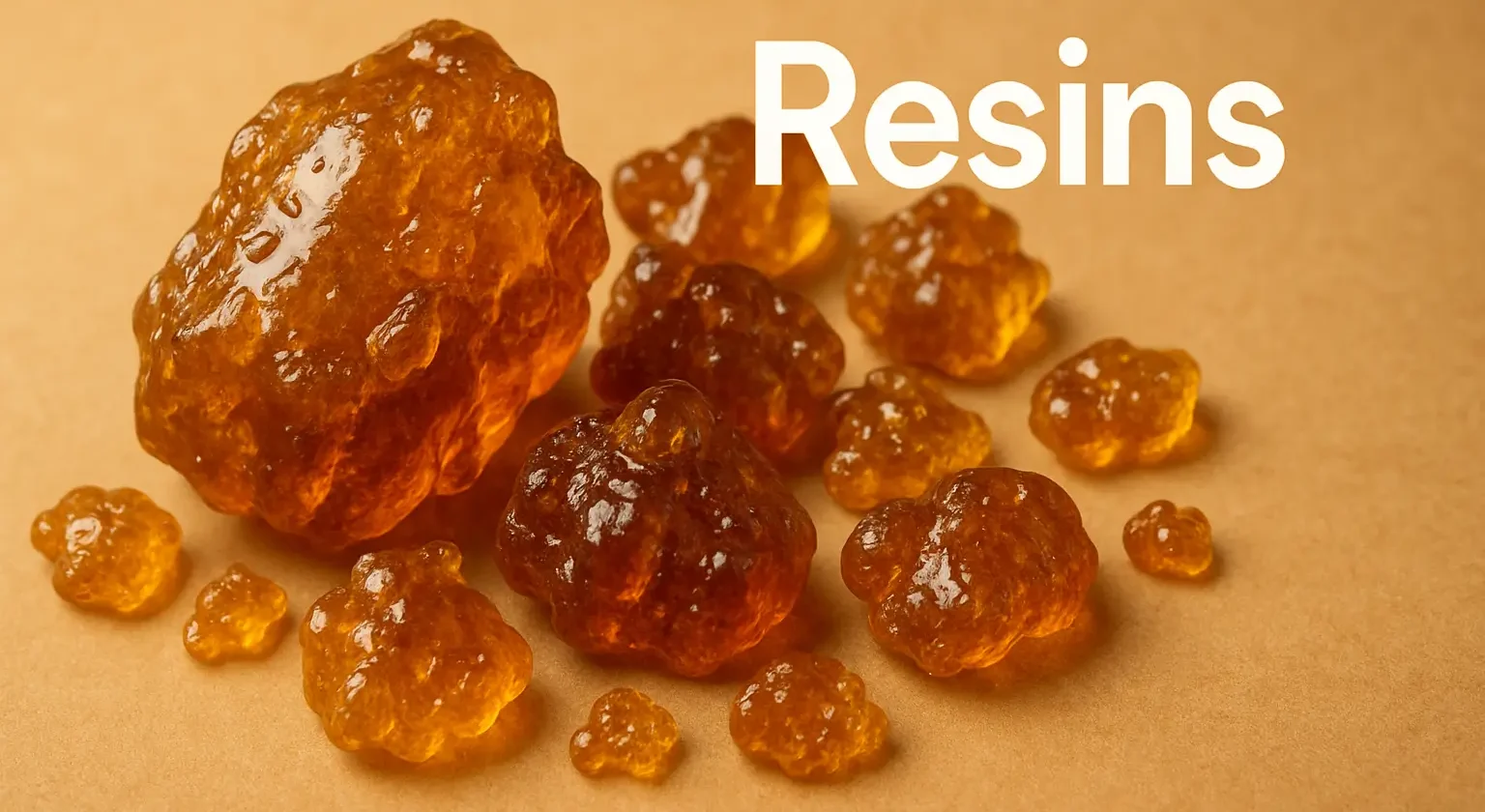- Introduction to Resins: Natural or synthetic compounds used in pharmaceuticals and varnishes.
- Introduction to Resins: Obtained from plant exudates or chemical synthesis with therapeutic value.
- Resins are natural or synthetic substances used in pharmaceuticals for binding, coating, or emulsifying due to their sticky, polymeric nature.
Definition & Chemical Nature:
- Complex Mixtures: Sticky, viscous substances produced by plants, containing volatile and non-volatile components like terpenoids, acids, and phenolic compounds.
- Exudation: Secreted from specialized cells or ducts as a protective response to injury.
Functions in Plants:
- Wound Sealing: Prevent infection and water loss by sealing damaged areas.
- Defense: Deter herbivores and inhibit pathogen growth through antimicrobial properties.
- Communication: Sometimes attract beneficial insects or aid in plant signaling.
Human Uses of Resins:
- Traditional Medicine: Known for antiseptic, anti-inflammatory, and analgesic effects.
- Perfumes & Incense: Valued for aromatic properties.
- Industrial Applications: Used in varnishes, adhesives, and natural preservatives.
Advertisements

